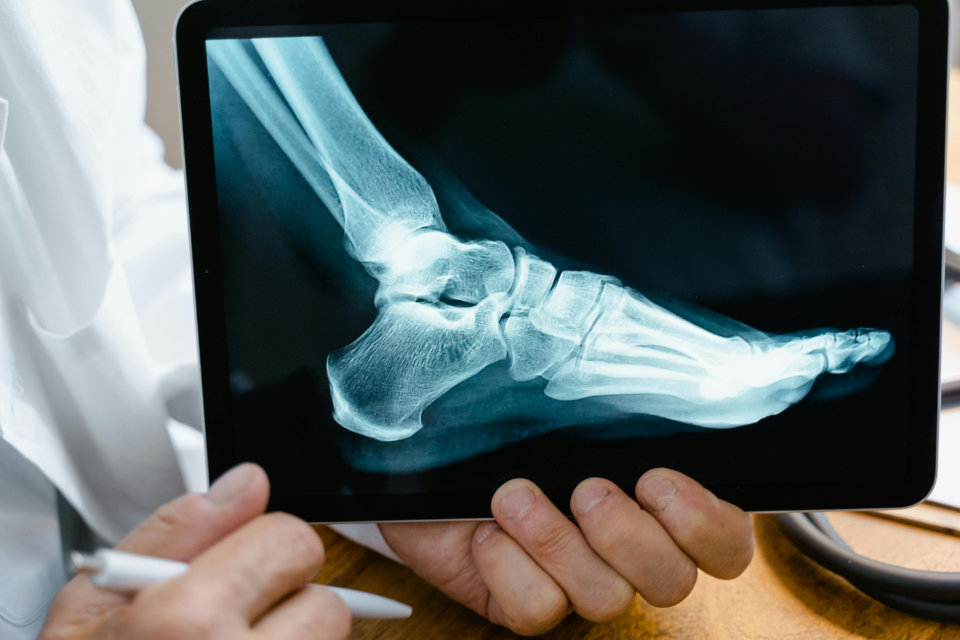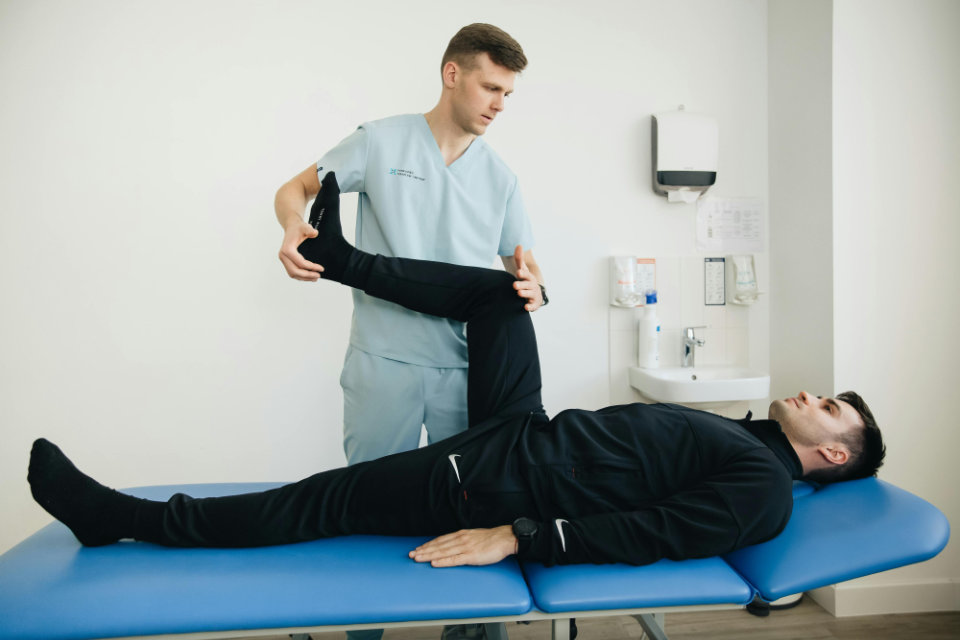Running is a fantastic way to stay fit, but it can also take a toll on your body. For runners, staying proactive about healthcare is key to staying healthy, injury-free, and performing at your best.
Did you know? Research shows that nearly half of all runners experience injuries, with knee injuries making up 27% and Achilles tendon and calf injuries accounting for 25%.
Whether you’re a seasoned marathoner or a weekend jogger, regular check-ins with sports medicine professionals—like physiotherapists, podiatrists, and sports doctors—are crucial. They don’t just treat injuries; they help prevent them, improve your running form, and optimise your performance.
In this article, we’ll explore the best healthcare professionals every runner should have on their team. And remember, your local GP or nurse practitioner is also a great starting point—they can provide expert care or refer you to specialists when needed.
For those interested in pursuing a career path to help athletes, nurse practitioner programs online offer a flexible and efficient way to enter the field. They also work closely with the other health professions that we’ll be delving into in this article.
Common running issues
Before delving into which health professionals you should see and why—it’s essential to understand the different types of running-related injuries and the impact they can have. The most common running problems include:
Runner’s knee: This is a common injury, associated with overuse of the knee. It can happen for different reasons, but if you start feeling pain or discomfort in the knee, it’s important to see a health professional.
Stress fracture: This refers to a small crack in a bone that can cause pain and/or discomfort. It typically affects runners in either the feet or shin. It’s often due to running too hard or overuse.
Shin splint: Shin splints, also known as medial tibial stress syndrome (MTSS), can be common after going for a run. It’s essentially pain and/or discomfort that happens if there is too much stress on the shin.
Achilles tendinopathy: This condition, formerly known as tendinitis, is a chronic degenerative change that impacts the Achilles tendon. Overuse and repetitive stress to the Achilles tendon can cause it.
Pulling a muscle: Often caused by overstretching a muscle, pulling a muscle is when the muscle ends up with a small tear. This can be incredibly painful but is treatable and avoidable.
Ankle sprain: This refers to the accidental stretching or tearing of the ligaments that surround the ankle. It’s a common injury for runners, especially if the foot accidentally twists or rolls inward.
Iliotibial band syndrome: This syndrome, also known as IT band syndrome, causes pain on the outside of the knee. It is common among runners and happens when the IT band ligament rubs against the knee bone, causing inflammation.
Blisters: Blisters are fluid-filled sacks on the surface of the skin. When running, they can be caused by friction between your shoes and/or socks against the skin.

Why you should see a professional
Many of the common injuries and conditions associated with running can be prevented and managed by visiting a professional. Many GPs or nurse practitioners will be able to help with general conditions, like ankle sprains or blisters.
For issues like Achilles tendinopathy or problems caused by poor running form, it may be beneficial to visit a specialist or sports medicine doctor. They have a deeper understanding of sports-related injuries and can provide a specialized treatment approach.
Sports medicine specialists can also help beyond injury treatment. They can also help with performance optimization, like improving form, training regimens, and injury prevention strategies.
Nutrition also plays a massive role in fitness and overall well-being. For runners, it can be beneficial to see a professional, like a sports nutritionist, to optimize and ensure a well-balanced diet.
Who should you see?
Whether you’re seeking help for an injury, looking for strategies to prevent injuries, or optimizing your running—various health and allied health professionals can help. Below, we’ve outlined what they are and how they can assist.
1. Physiotherapist
Physiotherapists, also known as physical therapists, are trained healthcare specialists who are experts in body movement and function. They typically work with patients to help restore motor function and manage pain.

Running is a high-impact sport, that requires balance, muscle strength, and joint range of movement. A physiotherapist can work with a runner to assist with their posture and alignment, muscles, and balance.
They can assess for any areas of weakness or imbalances that could result in injury during running. Physiotherapists can also help with gait analysis, assess running form, and help with any abnormalities.
2. Podiatrist
A podiatrist is a healthcare practitioner who specializes in working with the feet and ankles. They can diagnose and treat any ailments, like running injuries, that affect the feet, ankles, and lower legs.
Podiatrists also have the expertise to treat sports injuries, like sprains and injuries to the Achilles tendon. If you’re concerned about your feet or have a running injury, it can be beneficial to visit a podiatrist for treatment and management.
Podiatrists (like many runners) are also passionate about footwear and understand how important a good pair of sneakers is for running. If you need any help finding the best shoes for your feet, a podiatrist can provide advice for footwear and assist with custom orthotics.
3. Sports medicine doctor
While a GP or nurse practitioner can provide general health information, a sports medicine doctor specializes in sports-related injuries and conditions. They can offer a more comprehensive approach to injury diagnosis and treatment.
Beyond treatment, a doctor specializing in sports medicine can also provide advice on training plans and how to return to, running after an injury. They can also work alongside your GP and other care providers to ensure thorough treatment.
4. Massage therapist
Anecdotal evidence and research that suggests massage therapy can help with training and recovery after an injury. It’s also suggested that it can help with:
Stimulating blood flow which results in improved circulation and enhances athletic performance.
Reducing inflammation and increasing muscle recovery.
Improved flexibility and mobility through a consistent massage routine.
Seeing a massage therapist regularly can also assist with relieving tension and reducing post-run soreness. A sports massage therapist can also target specific muscle groups that are commonly tight in runners, like the calves and hamstrings.
5. Sports nutritionist
Research has found that diet plays a massive role in physical health and overall well-being. Not only does it contribute to nutrition and weight management, but studies have found it also helps with disease prevention, quality of life, and mental health.
If you want to get the most out of your running and also improve overall health, seeing a sports nutritionist can be advantageous. They can create diet plans tailored to your lifestyle and preferences to ensure you’re eating a well-balanced, nutritious diet that’ll complement your running.
Studies have found nutrition plays a massive role in preventing and recovering from injuries. For example, protein is important for building muscle and repairing any muscle-related injuries, like tearing.
Run Smarter, Not Harder
Running is more than just a sport—it’s a lifestyle that demands care and attention to keep your body in peak condition. By partnering with the right healthcare professionals, from physios and podiatrists to trusted GPs, you can prevent injuries, improve your performance, and enjoy the miles ahead.
Staying proactive about your health isn’t just about treating problems; it’s about building a strong foundation for a lifetime of running. Lace up, stay informed, and keep moving forward!














